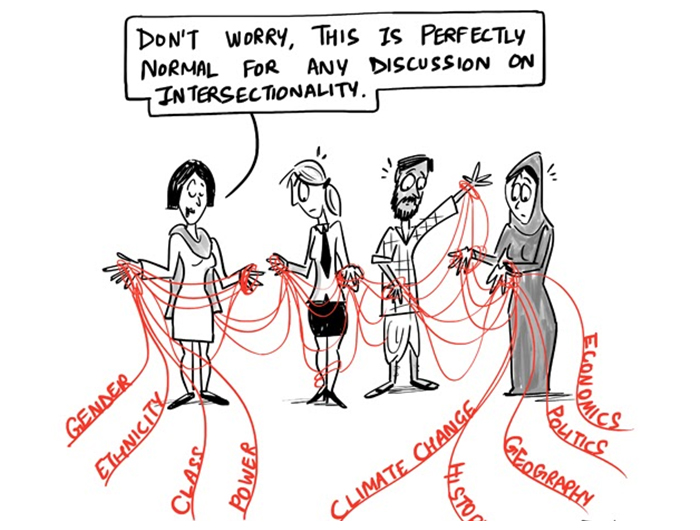Understanding the complex concept and its relevance
Intersectionality is a way of understanding social relations by examining intersecting forms of discrimination. This means that acknowledging social systems are complicated and that many forms of oppression – like racism, sexism, and ageism – might be present and active at the same time in a person’s life. Everyday approaches to building equality tend to focus on one type of discrimination, for instance, sexism, and then work to address only that specific concern. But while the career of young white and able-bodied women might improve with gender equality protections, an older disabled African American lesbian may continue to be hampered by racism, ageism, ableism, and homophobia in the workplace.
Intersectionality is about understanding and addressing all potential roadblocks to an individual or group’s well-being. But it’s not as simple as just adding our prescience and addressing each one individually. Racism, sexism, and ableism exist on their own. But when combined they compound and transform the experience of oppression. Intersectionality acknowledges the unique oppressions that exist but is also dedicated to how they change in combination. The roots of intersectionality lie within the ‘Black Feminist’ movement with legal scholar Kimberly Crenshaw originating the term. Crenshaw felt that anti-racist and feminist movements were both overlooking the unique challenges faced by black women. She stated that legislation about race is framed to protect black men, and legislation about sexism I understood to protect white women. So simply combining racism and sexism does not, therefore, protect black women.
The intersectional theory is now applied across a range of social divisions and also to understandings of domination such as those associated with whiteness, masculinity and heterosexuality. Intersectionality is not only about multiple identities and it’s not a simple answer to solving problems around equality and diversity. Intersectionality means listening to others, examining our privileges and about who may be excluded or adversely affected by our work. It means taking measurable action to invite, include and centre the voices and work of marginalised individuals.

